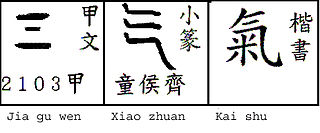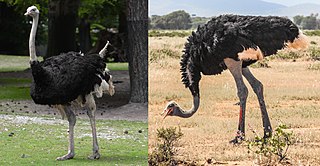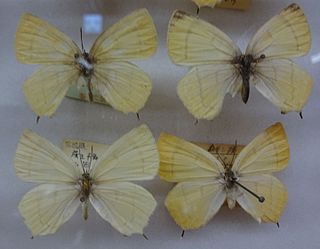
China, officially the People's Republic of China (PRC), is a country in East Asia. It is the world's second-most-populous country, with a population exceeding 1.4 billion. China spans the equivalent of five time zones and borders fourteen countries by land. With an area of nearly 9.6 million square kilometers (3,700,000 sq mi), it is the third-largest country by total land area. The country is divided into 22 provinces, five autonomous regions, four municipalities, and two semi-autonomous special administrative regions. Beijing is the national capital, while Shanghai is the most populous city and largest financial center.

Confucianism, also known as Ruism or Ru classicism, is a system of thought and behavior originating in ancient China, and is variously described as a tradition, philosophy, religion, theory of government, or way of life. Confucianism developed from what was later called the Hundred Schools of Thought from the teachings of the Chinese philosopher Confucius (551–479 BCE). Confucius considered himself a transmitter of cultural values inherited from the Xia (c. 2070–1600 BCE), Shang (c. 1600–1046 BCE) and Western Zhou dynasties (c. 1046–771 BCE). Confucianism was suppressed during the Legalist and autocratic Qin dynasty (221–206 BCE), but survived. During the Han dynasty, Confucian approaches edged out the "proto-Taoist" Huang–Lao as the official ideology, while the emperors mixed both with the realist techniques of Legalism.

Kong Fuzi, more usually Kongzi, commonly latinized as Confucius, was a Chinese philosopher of the Spring and Autumn period who is traditionally considered the paragon of Chinese sages. Confucius's teachings and philosophy underpin East Asian culture and society, and remain influential across China and East Asia to this day. His philosophical teachings, called Confucianism, emphasized personal and governmental morality, correctness of social relationships, justice, kindness, and sincerity, as well as an emphasis on a ruler's duty to their subjects.

Chiang Kai-shek was a Chinese politician, revolutionary, and military leader who served as the leader of the Republic of China (ROC) and the Generalissimo of the National Revolutionary Army. He held these positions in mainland China from 1928 until 1949, when his nationalist Kuomintang (KMT) party was defeated in the Chinese Civil War by the Chinese Communist Party (CCP)—thereafter, he led the remnant of the ROC government on the island of Taiwan until his death.

Li Lianjie, better known by his stage name Jet Li, is a Chinese-born Singaporean martial artist, former Wushu champion, film actor, film producer, and philanthropist. He is widely regarded as one of the most iconic Chinese film stars and one of the most renowned martial arts stars of his generation.

Mao Zedong was a Chinese politician, Marxist theorist, military strategist, poet, and revolutionary who was the founder of the People's Republic of China (PRC). He led the country from its establishment in 1949 until his death in 1976, while also serving as the chairman of the Chinese Communist Party during that time. His theories, military strategies and policies are known as Maoism.

In traditional Chinese culture and the East Asian cultural sphere, qi, also ch'i in Wade–Giles romanization or chi, is believed to be a vital force forming part of any living entity. Literally meaning "vapor", "air", or "breath", the word qi is a polysemous word often translated as "vital energy", "vital force", "material energy", or simply as "energy". Qi is a mythical concept in traditional Chinese medicine and in Chinese martial arts. The attempt to cultivate and balance qi is called qigong.

Taiwan, officially the Republic of China (ROC), is a country in East Asia. It is located at the junction of the East and South China Seas in the northwestern Pacific Ocean, with the People's Republic of China (PRC) to the northwest, Japan to the northeast, and the Philippines to the south. The territories controlled by the ROC consist of 168 islands with a combined area of 36,193 square kilometres. The main island of Taiwan, also known as Formosa, has an area of 35,808 square kilometres, with mountain ranges dominating the eastern two-thirds and plains in the western third, where its highly urbanized population is concentrated. The capital, Taipei, forms along with New Taipei City and Keelung the largest metropolitan area. With around 23.9 million inhabitants, Taiwan is among the most densely populated countries.

Taoism or Daoism is a diverse tradition indigenous to China, variously characterized as both a philosophy and a religion. Taoism emphasizes living in harmony with what is known as the Tao—generally understood as being the impersonal, enigmatic process of transformation ultimately underlying reality. The Tao is represented in Chinese by the character 道, which has several related meanings; possible English translations for it include 'way', 'road', and 'technique'. Symbols such as the bagua and taijitu are often employed to illustrate various aspects of the Tao, which can never be sufficiently described with words and metaphors alone. Taoist thought has informed the development of various practices and rituals within the Taoist tradition and beyond, including forms of meditation, astrology, qigong, feng shui, and internal alchemy. A common goal of Taoist practice is self-cultivation resulting in a deeper appreciation of the Tao, and thus a more harmonious existence.

The Xuantong Emperor, better known by his personal name Puyi, courtesy name Yaozhi (曜之), was the last emperor of China as the eleventh and final monarch of the Qing dynasty. He was later ruler of the puppet state of Manchukuo under the Empire of Japan from 1934 to 1945. He became emperor at the age of two in 1908, but was forced to abdicate at the age of six in 1912 during the Xinhai Revolution. His era name as Qing emperor, Xuantong, means "proclamation of unity".

Laozi, also romanized as Lao Tzu and various other ways, was a semi-legendary ancient Chinese philosopher, author of the Tao Te Ching, the foundational text of Taoism along with the Zhuangzi. Laozi is a Chinese honorific, typically translated as "the Old Master". Modern scholarship generally regards his biographical details as invented, and his opus a collaboration. Traditional accounts say he was born as Li Er in the state of Chu in the 6th century BC during China's Spring and Autumn Period, served as the royal archivist for the Zhou court at Wangcheng, met and impressed Confucius on one occasion, and composed the Tao Te Ching in a single session before retiring into the western wilderness.

Yao Ming is a Chinese basketball executive and former professional player. He played for the Shanghai Sharks of the Chinese Basketball Association (CBA) and the Houston Rockets of the National Basketball Association (NBA). Yao was selected to start for the Western Conference in the NBA All-Star Game eight times, and was named to the All-NBA Team five times. During his final season, he was the tallest active player in the NBA, at 2.29 m.

Ostriches are large flightless birds. They are the heaviest and largest living birds, with adult common ostriches weighing anywhere between 140-320 lbs and laying the largest eggs of any living land animal. With the ability to run at 70 km/h (43.5 mph), they are the fastest birds on land. They are farmed worldwide, with significant industries in the Philippines and in Namibia. Ostrich leather is a lucrative commodity, and the large feathers are used as plumes for the decoration of ceremonial headgear. Ostrich eggs have been used by humans for millennia.

Xi Jinping is a Chinese politician who has been the general secretary of the Chinese Communist Party (CCP) and chairman of the Central Military Commission (CMC), and thus as the paramount leader of China, since 2012. Xi has also been the president of the People's Republic of China (PRC) since 2013. He belongs to the fifth generation of Chinese leadership.

Humanistic Buddhism is a modern philosophy practiced by Buddhist groups originating from Chinese Buddhism which places an emphasis on integrating Buddhist practices into everyday life and shifting the focus of ritual from the dead to the living.

BirdLife International is a global partnership of non-governmental organizations that strives to conserve birds and their habitats. BirdLife International's priorities include preventing extinction of bird species, identifying and safeguarding important sites for birds, maintaining and restoring key bird habitats, and empowering conservationists worldwide.

The Theclini are a tribe of butterflies in the family Lycaenidae. As not all Theclinae have been assigned to tribes, the genus list is preliminary.

Ang Lee is a Taiwanese filmmaker. Born in Pingtung County of southern Taiwan, Lee was educated in Taiwan and later in the United States. As a filmmaker Lee's work is known for its emotional charge and exploration of repressed, hidden emotions. During his career, he has received international critical and popular acclaim and numerous accolades including two Academy Awards, four BAFTA Awards, and three Golden Globe Awards. In 2003, Lee was ranked 27th in The Guardian's 40 best directors.

The 14th Dalai Lama, known to the Tibetan people as Gyalwa Rinpoche, is, as the incumbent Dalai Lama, the highest spiritual leader and head of Tibet. He is considered a living Bodhisattva; specifically, an emanation of Avalokiteśvara in Sanskrit, and Chenrezig in Tibetan. He is also the leader and a monk of the Gelug school, the newest school of Tibetan Buddhism, formally headed by the Ganden Tripa. The central government of Tibet, the Ganden Phodrang, invested the Dalai Lama with temporal duties until his exile in 1959.

Shirozua jonasi, the orange hairstreak, is a butterfly of the subfamily Lycaeninae. It was described by Edward Wesley Janson in 1877. It is found in the Russian Far East, north-eastern China, Korea and Japan. It is widely distributed in the forest belt.




















